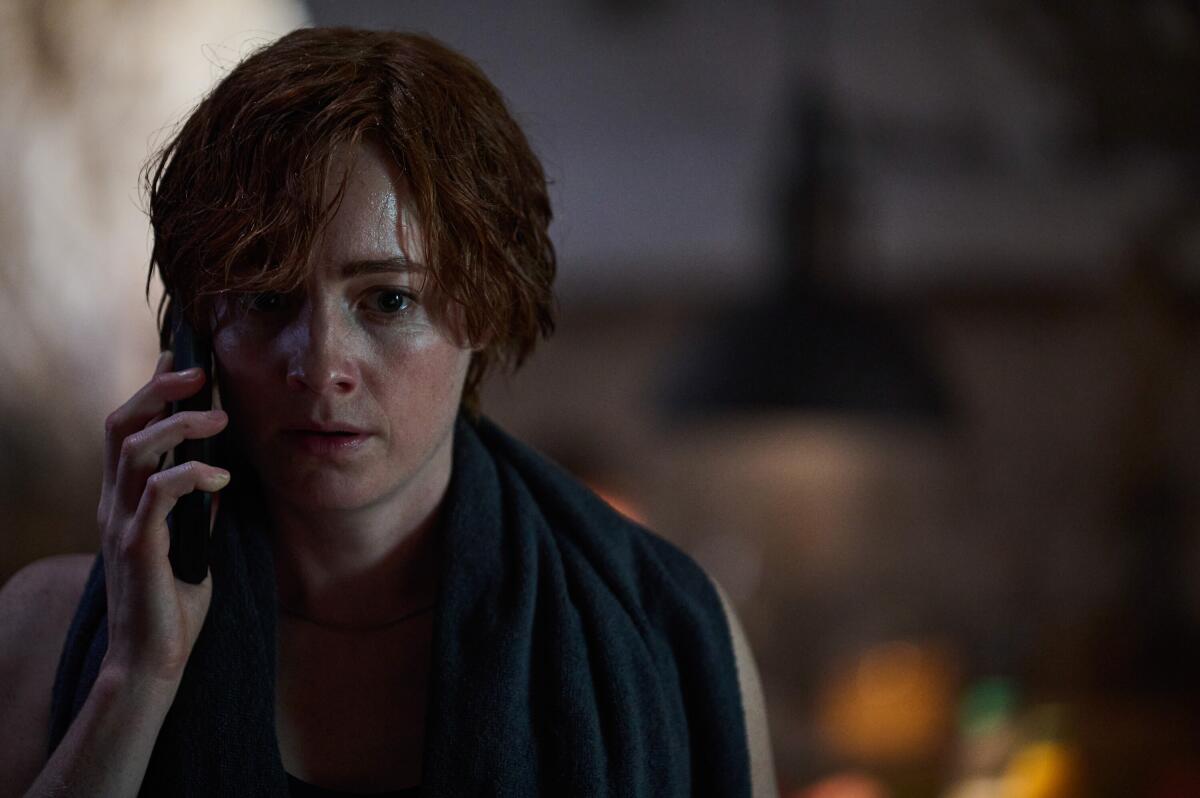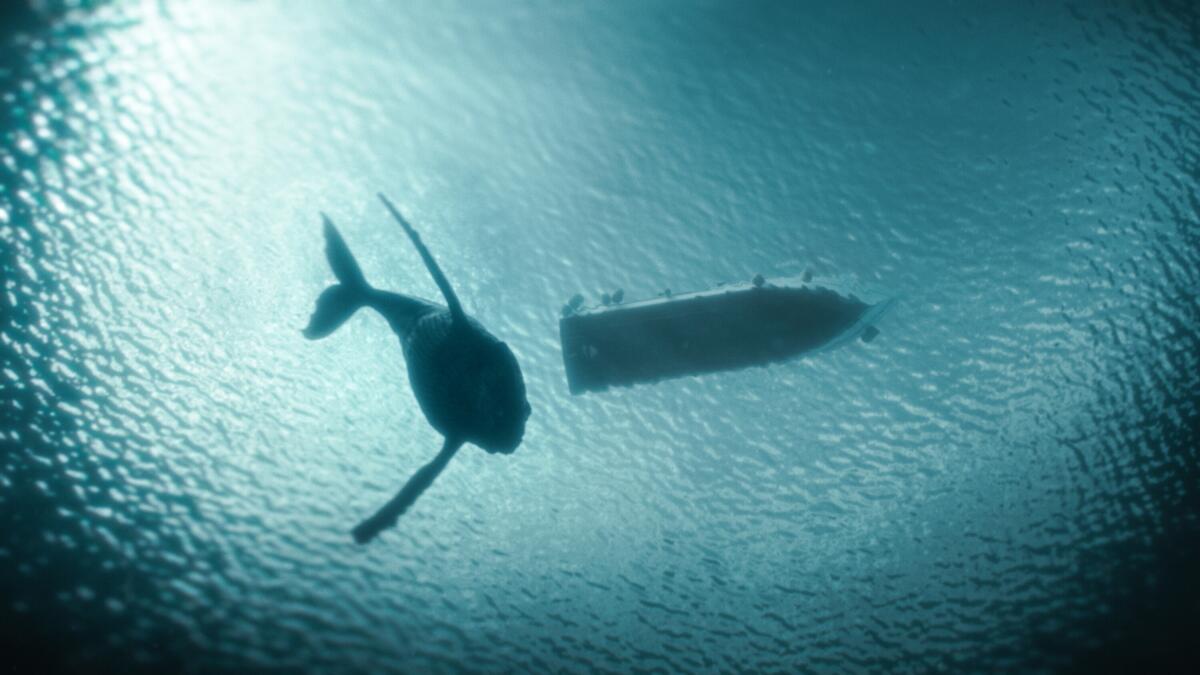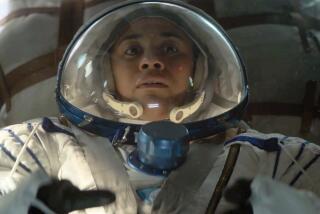‘The Swarm’ review: A cinematic eco-thriller examines ocean life gone awry

Now is the fall season of our imported content.
With the product shortfall caused by the ongoing industrial disagreements, platforms and providers naturally have looked abroad for material to acquire. The CW Network, which already has a trio of Canadian comedies occupying its Monday lineup, now brings you “The Swarm,” an “event” series premiering Tuesday on the CW. An oceangoing paranormal eco-thriller based on a 2004 novel by German writer Frank Schätzing, it’s an international production that, though it fits the CW’s history with genre shows, is not — in terms of budget, cinematic gorgeousness, special effects, extensive on-the-water and underwater photography or eight-episode run — what you would otherwise find airing on this second-tier broadcast network. (To take up even more space on the schedule, it re-airs on Wednesday.)
Our story begins in Peru, with a fisherman in a reed boat; all it takes is a leg dangling in the water for John Williams’ two-chord shark theme to strike up in the mind’s ear. (The series’ own score is less aggressively ominous, if ominous all the same.) It’s not a big fish that gets him, though, but a school of little ones.
We move then to Vancouver Island, B.C., Canada, where an orca has washed up dead on the beach, eliciting the concern of First Nations marine researcher Leon Anawak (Joshua Odjick), who is already concerned that the migrating pods are late to arrive. (A friend’s battered boat will recall this year’s real-world orca attacks in the Mediterranean.) And on Scotland’s Shetland Islands, in a lonely, weather-beaten station appropriately dubbed “the Rock,” Charlie Wagner (Leonie Benesch), attached to the Institute of Marine Biology in Kiel, Germany, is riding out a summer of busy work, a sort of punishment for being a rules-ignoring hothead. “I like doing things my own way,” she admits to Douglas MacKinnon (Jack Greenlees), the cute local fisherman she meets over whiskey in the local bar. Despite the fact that Wagner’s PhD thesis involves the collapse of marine populations due to overfishing — fighting words in those parts — they’ll get, um, friendly and travel together onto a foggy sea littered with weird bits of algae-born frozen methane.

Although only the first episode was made available to review, notwithstanding the fact that the series has already aired in other countries, we know from the network’s own publicity that future installments will include scenes in which “deep sea crabs attack beaches, mussels block container ships, [an] unknown ice worm destabilizes continental slopes and triggers tsunamis [and a] deadly pathogen spreads into the drinking water.” More has been publicly revealed, but it seems too much of a spoiler to mention.
We know how to read these texts all too well; genre and generic share more than a Latin root. But though there are plenty of B movie beats and tropes in “The Swarm,” the execution of this first hour — slow to build, explosive in the end — is first rate. Money has clearly been spent, without the production calling attention to itself as “expensive,” but care has been expended, too, on making the settings and situations feel authentic. And whatever verges on corn is redeemed by well-played, if quickly drawn, characters who make good company and are easy to invest in. Benesch and Odjick are especially engaging, each communicating a soulful melancholy that suits the moodiness of the production.
It’s impossible, of course, to know whether “The Swarm” will fulfill its early promise or go off the rails in Episode 4 or 5 or 6. One strength of the opening episode is its local focus, or focuses. Part of what makes “Jaws,’ like Hitchcock’s “The Birds,” that other great film of interspecies antagonism, so effective is that they’re character-centered, small-town stories; the president is never alerted, the troops are not brought in. And they never bother with explanations — a mystery is almost always more engaging than the solution. I sense that an explanation may be forthcoming, and that things may go big here, but hope that even as they do, they stay fundamentally personal.
In any case, it’s an excellent beginning.
More to Read
The complete guide to home viewing
Get Screen Gab for everything about the TV shows and streaming movies everyone’s talking about.
You may occasionally receive promotional content from the Los Angeles Times.







